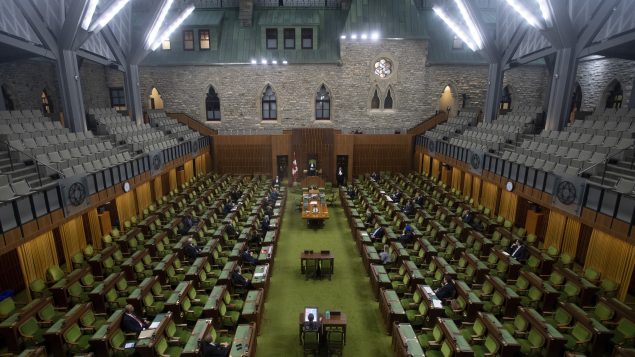In a near-unanimous vote on Wednesday, the minority Liberal government and opposition parties in Parliament passed an aid package bill worth $107 billion to help Canadian families and businesses cope with the economic and financial fallout of the COVID-19 pandemic.
The House of Commons – with only 32 Members of Parliament present to prevent the spread of the virus – passed the legislation early Wednesday morning following a late night of tense negotiations after the opposition Conservatives expressed concerns about the emergency taxation powers the government granted itself in the proposed legislation.
The Liberals eventually withdrew some of the more contentious clauses, agreeing to a more stringent time limit on their unlimited spending power. The legislation also requires parts of the bill come to an end if they’re not reauthorized by Parliament through legislation by a certain date.
The legislation passed the Senate without any amendments and the bill received royal assent from Governor General Julie Payette Wednesday afternoon.

Minister of Finance Bill Morneau responds to questions about the government’s COVID-19 financial bill in the House of Commons following hours of negotiations Wednesday March 25, 2020 in Ottawa. (Adrian Wyld/THE CANADIAN PRESS)
While the government had initially presented an $82 billion aid package, the amount of federal financial assistance grew sharply to $107 billion because the forthcoming emergency response benefit is more generous and will be available to more people, Finance Minister Bill Morneau said Wednesday.
The augmented aid package now includes $52 billion in direct support payments and $55 billion in tax deferrals, Morneau said.
Morneau answered questions in the Senate, painting a grim picture of the state of the Canadian economy, the CBC’s John Paul Tasker reported.
The senators also wanted to hear details on how the new Canada Emergency Response Benefit (CERB) proposed by the Liberal government would actually work.
Under the legislation, workers would have access to as much as $2,000 a month for four months, Morneau said.
All Canadian workers over the age of 15 who have earned more than $5,000 in the last 12 months but are now earning no income because of the COVID-19 pandemic would qualify for the temporary benefit program, Morneau said.
The CERB also applies to workers, including freelancers, who do not have access to the current employment insurance (EI) program.
With files from John Paul Tasker of CBC News







For reasons beyond our control, and for an undetermined period of time, our comment section is now closed. However, our social networks remain open to your contributions.